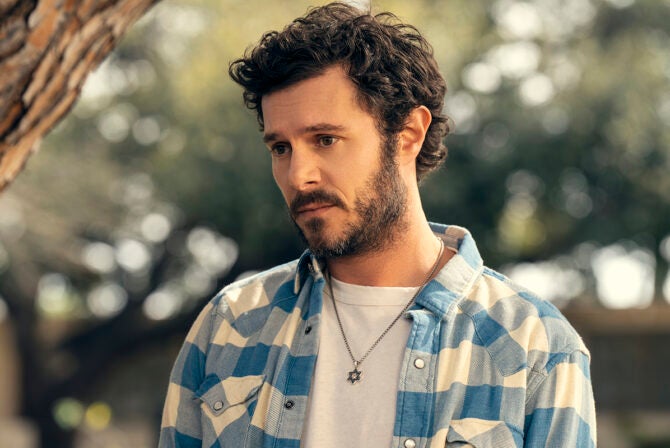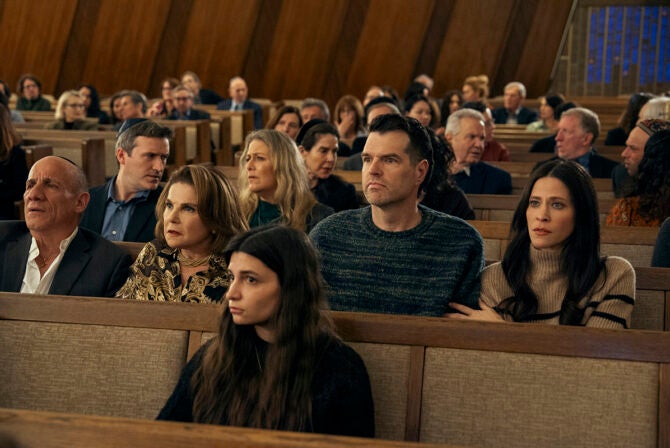At the 1952 Olympics in Helsinki, gymnast Agnes Keleti, at 31, was poised, disciplined, stunningly elegant and impossibly flexible as she took to the floor and performed an exercise that would go on to win a gold medal. It’s a performance still studied by gymnasts to this day, one that made the Hungarian Jewish athlete the first to win a gold medal in the Olympic floor exercise.
Keleti won four Olympic medals that year and would go on to win a total of 10 Olympic medals throughout her career, making her one of the most decorated Olympic athletes in history. But first gracing the Olympic stage at 31, she was older than what many would consider the ideal age for an Olympic gymnast, much older than many of the other competitors she ended up besting. Those prime years she would have spent honing her skills were spent instead fighting for her survival, taking on a false identity and going into hiding as her father and other relatives perished in Auschwitz along with 500,000 of Hungary’s Jewry during the Holocaust.
This week, at age 103, Agnes Keleti passed away. She lived through over a century and changed the world of gymnastics forever. In Israel, where she resided for half of her storied life, they call her “the mother of Israeli gymnastics.” She made it there in 1957, a year after seeking asylum in Australia after the 1956 Hungarian uprising. Keleti previously told JTA that she left because of the antisemitism in the country. It was hard to be a Jew there, even if you were (and remain) one of the country’s most decorated athletes.
It was in Israel where she achieved what her son calls her “victory against the Nazis” — she became a mother at age 41, and had two sons. On her 100th birthday, Keleti shared with Haaretz that her biggest achievement was “starting a new life in Israel, starting her family, having two children, Daniel and Rafael, who are successful, happy, and love what they do.”
Keleti was 18, one of two daughters of a well-to-do Jewish family in Budapest, when World War II broke out and dashed her hopes of participating in the 1940 Olympics. A year later, she was barred from her athletics club. She turned her focus to survival, taking on a false identity and working as a maid and a munitions worker, and helping her mother and sister in hiding. During the siege of Budapest, she recalls helping collect the bodies of dead Jews in the morning: “We dug tunnels with our bare hands to throw the bodies of the Jews inside.”
Agnes Keleti, was, by all accounts, a badass: a survivor, a woman who marched to the beat of her own drum and who didn’t mince her words. Eventually training young gymnasts, she said the secret to her success was to drive herself hard, and she drove the girls she trained hard, too. “It’s the only way to get performance. Being nice and motherly doesn’t do it,” she explained in 2019.
“She was a tough cookie,” Israeli Sergiusz Lipczyc, who witnessed her work at Israel’s Wingate Institution, recalled in an interview with JTA. “I remember her correcting one girl’s exercise by saying in front of everybody, ‘Don’t open your legs like that, it’s not nighttime just yet.’”
Agnes wasn’t particularly soft with the girls she trained, but she also firmly believed that joy belonged in gymnastics. It’s plain to see in videos of the athlete from her later years running through her exercises — something she did her best to do each day — in which she’s laughing, smiling, exuberant. After she finished that floor exercise in 1952, she recalled feeling pure happiness. In interviews from the 2000s, she often voiced her concern about athletes becoming younger and being made to retire in their 20s. She worried that girls started training for the Olympics too young, before their bodies or minds were ready for it. Agnes also believed in exercising for the pleasure of it, and often encouraged people to do sports just for fun.
Keleti herself said, “I never went to the competitions to win. I went there to go abroad, to see the world.”
In her 90s, Keleti became a viral sensation. A video Kveller produced about the forgotten athlete has gotten over 33 million views, and many publications have shared her incredible story. In 2021, the same year she celebrated her 100th birthday (“These 100 years felt to me like 60,” she told reporters at the Israeli embassy, flanked by a lavish cake and her many medals), she was part of a moving ad for the Tokyo Olympics that showed all the Olympics history Keleti had lived through — history she is an undeniable part of.
She left Israel in 2015 and went back to Hungary to be close to her youngest son, who never strayed far from his mother and always doted on her in interviews. They were together on stage in Israel in 2018 when she appeared on “Israel’s Got Talent.” Her eyes shone bright when the interviewer called her a wonder. “I love being, I love seeing the world, I love music, theater, to travel,” she said, offering her secret to longevity: “Work well, do good sport, travel the world and love your children!”
Agnes Keleti reminded us that there is no age when you can’t make your dreams come true, that Jewish women can accomplish anything, and that no Olympic medal beats finding joy in your loved ones. I am so grateful for her and that enduring lesson. May her memory be for a blessing.








